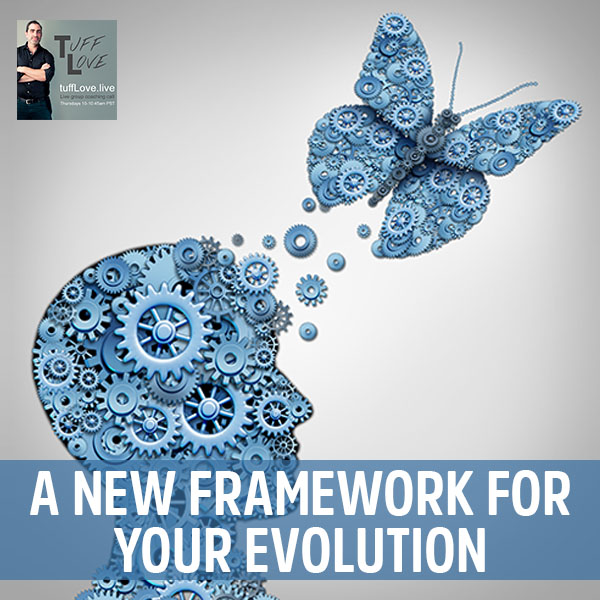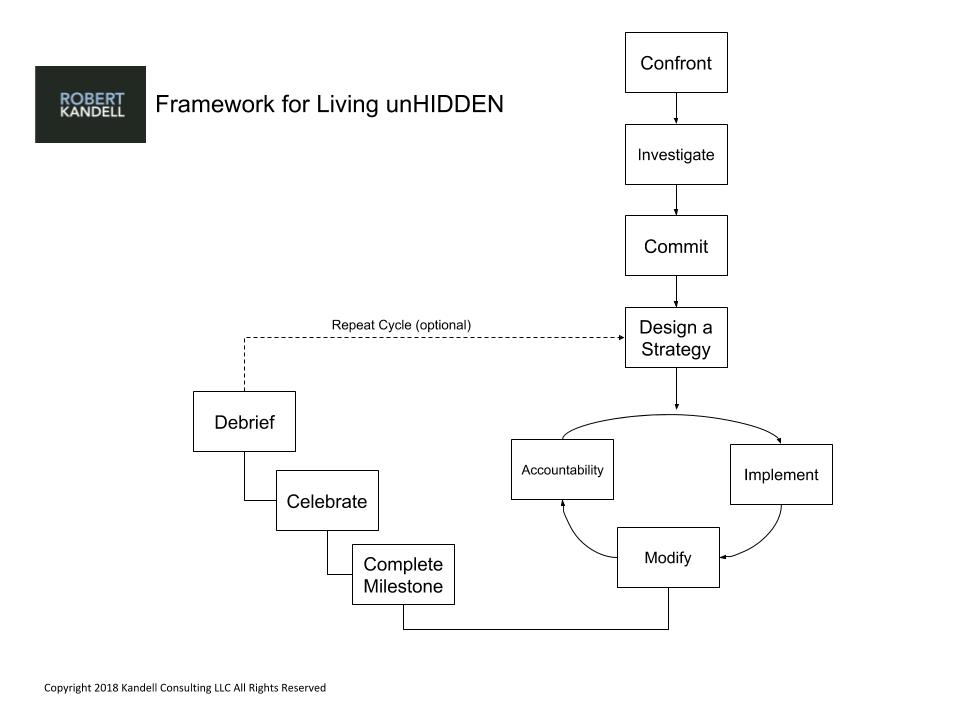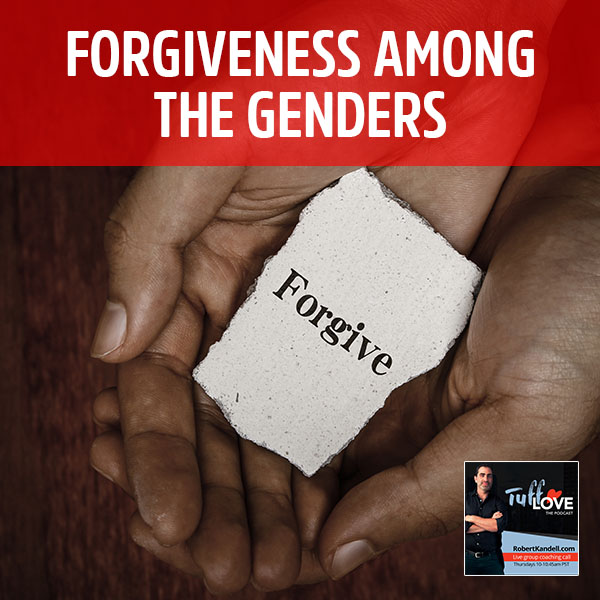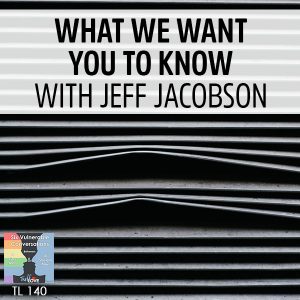
137: A New Framework For Your Evolution
May 29, 2018
Running out of excuses to finish that damn project? It’s time to learn how to practically implement change in your life with a new framework for your evolution. It’s a framework on how to live, but not going to talk about just the mere concept of it. I’m also going to incorporate my current experiences and hopefully, that’ll translate to you as well. This is the busiest my life has been in a long time. Some of you might know this sense of like, “I can’t get up. I can’t catch up. It’s chaos.” How does one continue to stay calm and centered and aware and present inside the chaos? Everyone here is wasting their potential. You’re not living life to the fullest. You might have accepted your place in the status quo. But listen: it’s our fear of chaos that keeps us in stagnant situations, and therefore unhappy. We have to dive in. You have to go in and look into the depths, and confront whatever it is you want to change.
—
I am thrilled to be back with another show and this is the framework for your success. It’s a pep talk for me to you on where you are and where you want to get to. Are you living the life you’ve always wanted to? 99.9% of you, I suspect are not. There are parts of your life that you want to up level. I talked about my own life, my belief in the Chaos Theory to motivate. It doesn’t have to be this way, but the willingness to step out of our comfort zone to live the life that we’ve always wanted. Then I’ll give you the framework that I’m working on for my book on how to take the steps specific steps of how you go from point A to point B and something I use constantly in my own practice for me to create the life exactly the way I want it.
137: A New Framework For Your Evolution
This show is about a framework of how to live. This is a part of my new process that I’m going to introduce in the book. I’m very excited to present this concept, especially after we talked about the hero’s journey and this show is about how to practically and dogmatically and pragmatically implement change in your life. I don’t want to just talk about the concept of this pragmatic framework. I also want to talk about what’s going on with me and hopefully, that’ll translate to you. This is the busiest my life has been in a long time. There were times at OneTaste, especially in the heat of it, when it was insane in terms of all these different things going on. We were running centers in multiple cities. I was on the road, I was dealing with finances, we were writing books, there were personalities. We had a residential center in San Francisco, we had a new commercial space in San Francisco, and it was this feeling that I couldn’t even take a breath without something being behind schedule.
Some of you might know this sense of like, “I can’t get up. I can’t catch up. It’s chaos.” What I’ve been working on with myself as a new skill is how do I continue to stay calm and centered and aware and present inside the chaos? I’m realizing that this is a skill that I’ve been working on my entire career from corporate America to OneTaste to here. I feel I’m pretty good at it, but most people are not. Most people stink at it. What happens is something goes wrong and all of a sudden, you’re in that state of, “I’m behind. I’m a total screw up. I’m going to lose everything. I’ll lose my job. I’m going to lose my girlfriend. My dog’s going to leave.”It’s going to be a bad country in Western song. Everything’s going to go to shit because you’re under pressure. One of the things that have formed my greatness and my mastery is a continual putting myself into chaotic situations and surviving. There could be some people that might look at this as a workaholic, self-sabotaging nature. There are people that could have that viewpoint. I can understand that. I have dealt with those internal questions as well, but there’s a flip side to it. In the flip side, there’s potential to put yourself in situations that will enable you to grow.
Everyone here is under potentialized. You’re not living up to your full potential. You’re in a place where you’ve accepted your status quo and you might not be thrilled with who you are right now. Does that resonate? Am I speaking to the choir or are any of you fully potentialized? What happens is that we have a fear that if we put ourselves in a chaotic situation, then we’ll get hurt or we’ll lose everything. I’m not saying throw yourself totally into the deep end, but what can you do to increase the magnitude, increase the chaos, increase the energy of your life? People are happy when things are chaotic, when things are stagnant. It’s our fear of chaos that keeps us in stagnant situations and therefore unhappy.
This is an insane time of my life. I am producing a website. I am doing an email series. I did videos. I’m learning ONTRAPORT to deal with the huge masses coming. I’m planning my book. I’m in phase two of the book where I’m taking the first draft and turning it into a second draft. I’m still talking to my coach twice a week and then revising that. I have one article a week to The Good Men Project. Now, I weekly contributor to GMP. At the same time, I have a full client load. I have a 100% busting at the seams, client load and I am dedicated to putting time and energy into my relationship because it’s so important and to our kids.
I don’t say this to brag because my hope is that I am doing far more than I ever thought I could and I’m succeeding and I’m happy. I’m not just happy, I’m happy, that deep-seated happiness. I’m working out too. It’s the deep-seated feeling when you go to the gym and you have a really good workout and you’re walking home and you’re a little sore and a little cranky, a little sweaty and at the same time, you’re like, “I went for it. I did it.” I’ve had this conversation more than a few times on our 136 podcasts. What are you doing to keep yourself in that status quo and stagnation and can you add one thing to kick your own ass? In the kicking of your own ass, that’s where joy really is. That’s my bias. There are people out there who like the lazy life.
That is the first part of this conversation is how do you turn the volume up of your life? Once you’re in that place where you’re turning the volume of your life, how do you deal with it? That’s what this framework is, which I’ve created and working on and it’s really cool. I’m happy with it. I’m going to go over the eight-step process. The first step in the framework is to confront. You need to confront what you want to change in your life. Without this step, you’re shooting yourself in the foot. A lot of us know there are parts of our lives that we want to change an up level. A lot of us know we want to lose weight or get a girlfriend or change jobs, but we don’t fully confront the full scope of it. We half-ass it. We’re like, “I want to change jobs.”
Then we dipped our toe in the pool of it. If you want to change something in your life, you need to jump into the full pool. You need to get naked, put your goggles on and jump into that cold pool and confront the situation. That’s being aware like, “My relationship with my parents, it’s really not healthy. That’s going against the grain. I need to change something about this relationship.””My job’s paying me a lot of money, but the ulcer in my stomach is starting to flare up again,” or “I’m not getting enough sleep” or “I’m noticing my job is ruining my personal life.”Or you’re in a relationship and it’s just like, “I am so sick of dating. I am so sick of the whole process and this relationship is good enough. It’s good enough, granted, he doesn’t pay attention to me. He doesn’t remember my birthday or anniversary. He doesn’t treat me very well in bed, but it’s good enough.”

We have to dive in. You have to go in and look and feel the feelings of the depths and confronting of the something you want to change. This is the fuel. This is the motivation because the next seven steps are challenging. Just like the Hero’s Journey was challenging and if you don’t fully have in your mind confronting what this problem is, it’s going to be much harder to be resolute. It’s going to be to keep the agreement or the consistency of the change if you don’t fully confront the problem. For me that’s a lot around my body image and my weight. There are times where I’m like, “I was doing all this stuff and I wasn’t getting the body I wanted.”I had to really look and stare in the mirror and be like, “It’s time to change,” for me to keep finding it and luckily, I found that with this personal trainer in 24 Hour Fitness. The point is if I didn’t stare at the mirror and constantly confront what I want to up level, it’s difficult to do so. Confront, notice it. Step number one.
Step number two is investigate. What I mean by investigate is to fully explore the concept and depth of this thing you want to change. Investigate it, look at it. In terms of physical fitness, look at all the options of changing your diet. I was on this thing called Purium, which is a ten-day cleanse that had me drop weight and reset my diet. I looked at a bunch of different physical fitness ways I could do and then chose up with 24 Hour Fitness. Investigate to check out all the corners of things you wanted to change. You can make this fun. This could be a research project. If you want to change your relationship, maybe there’s a couple’s therapy or maybe there is Tantra training or maybe there’s a swinger’s party you want to go to. Maybe you want to explore a year without love and sex and dating, a year of celibacy. Go and read people’s blogs. We have the internet where there’s 10,000 things to look at about every topic. Don’t believe all of it, but go in there and investigate and research and look. It enables your mind to look past the obvious and see what’s possible.
I’m constantly doing this with my business. When I want to promote or when I’m working on the book for me, there are lots of obvious ways and lots of people will sell you services on how to sell the book. In fact, I’m getting pitched by two guys that want to sell me a $25,000 package of how to sell my book. I don’t think I’m going to do it, but I’m definitely going to listen. I’m going to investigate it. I’m going to check it out. Do the legwork, hit the pavement. Start looking at all these places to get you more information in order to really say yes to it. The more time you spend in the investigation, the more powerful the process is with the caveat not to over investigate, not to get lost in this internet research of how you can find your partner. You have to go out there and do it. Take the time to check out the baseline of what’s next. I’m doing this constantly because I have a curious mind reading book after book after book about how to sell my book and also reading other concepts of how to make my book better because I want it to be awesome. So investigate.
Step number three is commit. I know I’m making the previous two steps seemingly important, but this maybe is the most important of all the pieces, commit. Let’s just sit with that word, commitment. Anyone have a little challenge the in saying, “I commit to this change,” because most of us are trained to have weak commitment muscles. We stink at commitment. I’ll commit first up to a point where it feels really painful and annoying and then I’m going to stop and I’m going to go back to eating gluten and dairy. We are really horrible to commit. Commitment means, “Yes, I’m going to put my ass on the line in order for this to happen. I’m going to say yes. I’m going to give myself 30 days.”Commitment could really just be a day-by-day thing. What they say in twelve steps, one day at a time, which I’m really a fan of. It’s like, “I’m going to commit to not drink one day at a time.” That’s the extent of people deep in their illness and their diseases are able to do that. I love that. Just one day commitment.
I’m noticing I want to lose some weight. I’ve made a commitment for no baked products for the next week. I’m a fan of the muffin. I will say I do eat the gluten-free muffin, but there’s still a lot of sugar in those gluten-free muffins. No baked products for a week just to see what happens. I went to Erewhon and I got my Bulletproof Coffee, which was delicious. Did I get the gluten-free muffin? No, because I was committed to no muffins or baked products are bread. No potatoes. The point is I’m committed and in that commitment there’s motion. Once I walked out of Erewhon with my coffee and my not having that normal muffin in my hand, I felt great about myself because I’m keeping my commitment. For all you people who are afraid of commitments, this might be the most challenging step, but it’s the most important. Maybe you need to write up on a big poster board, “I commit to not calling Dave because he’s a jerk” or “I’m going to find a new form of employment and I’m going to make a six-month plan.” I’m committed to that. Whatever that is, get a tattoo or write in a big piece of paper, write a blog about it on Facebook, whatever it takes to get into the commitment of taking this change in your life because without you knowing it, it’s just going to walk away. That is step three.
The next step is the bulk of the change. There’s a design strategy. Come up with an idea of how you want to make this change. Then it’s implement, then it’s modify and then it’s accountability. It’s like a loop. You’re in that loop, the implementation of your strategy. You’re spinning around your loop. You come up with an idea. For me and my muffins, it’s a very simple design strategy. Don’t buy muffin, don’t put muffin in mouth. That’s my strategy. I’m implementing it on day one of implementing. If that’s the new job, go out, “I’m going to find a headhunter to move me from position A to point B.”Then once you’ve designed a strategy, go and find that headhunter. Interview the four or five headhunters. Be willing to get into the bulk of it. I don’t think this is very complicated. This is the doing of the change. This is when your butt hits the seat of your chair, you’re laying down at yoga mat, you’re doing those pushups, you’re doing the pull ups. It’s actually what is happening. You’re implementing it. In the implementation, there is a modification that I want to give to you. This is really important. Sometimes in our commitment, we tend to be a little overzealous with what we think we should do.

Framework For Your Evolution: Allow yourself to tweak your commitment in order to find that balance because without that balance, you won’t do it.
My best example was I wanted to do 70 hot yoga classes in 80 days. Then in the first three weeks of killing myself, that’s seven days out of eight going to yoga, I killed myself. I was like, “I’m going to modify to 60 yoga classes in 80 days.” Then that didn’t work. I finally ended up with 40 yoga classes in 70 days. My point was it started off insane. 70 and 80, it ended up in 40 and 70. That’s still four yoga classes out of the week. That was right where it wasn’t hurting my body. It’s in the modification. Allow yourself to tweak your commitment in order to find that balance because without that balance, you won’t do it. You’ll just quit. I’m not assuming that I will die without seven days of muffins, but if I’m really hurting when I’m having a muffin fix and I want to get some, I might modify it, though I doubt it because it’s pretty straightforward. My commitment to my workout, I’ve actually increased it. I was working out with my trainer one day a week and then I went to two days a week. I actually increased the commitment because it felt good and my body felt right for it. It’s actually been a great change. I’ve been happy about that.
In this loop of implementation and modification, there’s accountability. This is a piece that most people don’t do. We do this in isolation and it’s much harder to do in isolation. My podcast is my definition of accountability. I’m revealing to you, my steady audience, constantly all the shit I’m planning to do. I talk about my yoga, all these things, I put that out there in the world so I can be seen and known by you. In the lack of isolation, there’s connection. I feel your eyes on me, all of you, all 12,000 downloads. I feel your eyes on me, keeping me in line, which ups the practice. Figure out what you want to do to make it accountable. Do you need to hire a coach? Do you need to join a men’s group or a women’s group or gender group that fits and share your goals and be seen by them? Do you want to ask a buddy to be your accountability partner? “I want to do 30 days of exercise or at least walking fifteen to twenty minutes a day, will you be my accountability partner? Can I text you every day when I complete? If I don’t text you by 5:00 in the afternoon, would you just send me a text,” and say, “Get off your ass. Stop watching Netflix, stop eating those gluten-free muffins and start walking.”
Create an accountability partner. You’d be amazed how much your friends will be to into this and maybe you’ll inspire them, and you can be their accountability partner. Accountability is a piece that most people don’t do because we tend to be isolationists, afraid to make commitments, afraid to commit to these commitments. In that lack of accountability, we don’t do shit and we end up in the same place. I have many, many forms of accountability. This podcast being one. I also share all my thoughts with Morgan and sometimes she screws up her face at me saying, “You’re crazy.”Then in the communication with her, I feel that she’s watching, and it encourages me to keep my commitments. You go through this loop, you want to lose a certain amount of pounds or you want to move a job. This loop can last a week. This loop to the last six months, this loop can last a year. You have to design that strategy, but in that, you can find out what you want to complete. This is really important. You want to have a milestone you want to complete to. You do not want an amorphous commitment. “I want to look better.”What the fuck does that mean?
A good project is I want to lose ten pounds. You go on scale and you write down the number and then you make that commitment to lose that pound. When you complete that milestone, you acknowledged the completion of the milestone. You say out loud, “I nailed it. I am a rockstar.” Then you celebrate your success. I have a conversation in the book about how there’s the autonomic system and the RAS and all these parts of your brain will learn from your success. I have one client, every time she makes money, she has a dance party for herself. What she does is she’s breathing inside her system that feeling of success and success breeds success. You must celebrate the milestone. You do not allow to diminish your milestone. You have to celebrate it because then that’ll enable you to have more and more success. If ten-pound is your goal, celebrate. No muffins for a week, celebrate. One year of celibacy, celebrate. Getting out of that relationship, celebrate. Do what it takes. You don’t want to go and have a muffin to celebrate not having the muffins, but you want to pat yourself on the back, whatever it takes for you to do that. If you want to announce on Facebook, “One week muffin-free.”The point is, is whatever it takes for you to celebrate is important.
The last step, the eighth step is to debrief. This is what people don’t do a lot either. Go back into your process and look at what worked and what could have been better. That language is very specific, “What worked and what could I have done better?” If you said, “What didn’t work?” Then you’re in the problem. If you’re looking at what worked and what you could have done better, then you’re having a conversation with yourself of how to up-level the next time you do it. You’re invited to repeat the cycle, to go back to the beginning of designing a strategy and running it again. Maybe you want to go back to the confronting the problem or up leveling the problem, but just keep that loop going of success because success breeds success. In this framework you’ll have the space to really start to love yourself. Self-esteem is built upon esteemable acts. It’s one of my core statements and one of the things people say, “How do you get to a point where you like yourself?” You do things that have you feel good about yourself and this process is one of them. I’m about to end the show and you’re thinking, “What do I do? How do I do it?” The point is that you’re not alone. I’m proud to announce I’m going to be starting a Facebook group and the Facebook group is free. It’s going to be called Unhidden in celebration of the book. It’s going to be a place for you to start to talk about the things you want to change. It’s going to be a place to celebrate your framework and where you are in the process.
If you’d like to join the Facebook group, just sign up for my free little video series that I’ll be announcing. Then in the first email you get back, there’ll be a link to the Facebook group or if you don’t want to get the Facebook just message me. You can send an email to Summer@KandellConsulting.com or find me on Facebook or in the world and just say, “Rob, will you add me to your Facebook group?” I will be glad to because this could be your accountability. This could be the place where you take the step from point A to point B. Thank you always for being here. I’m very excited. I hope that it added value. If you want to get the graphic and don’t want to go to the show notes, you can contact me as well. I’m glad to send you a PDF. Go forth. Get out there in the world, stop living in your limitations. You’re deserving more than you’re letting yourself have. That is my viewpoint. I’m sticking with it and that’s it. I love you. Take care.
Resources mentioned:
Podcast: Play in new window | Download







